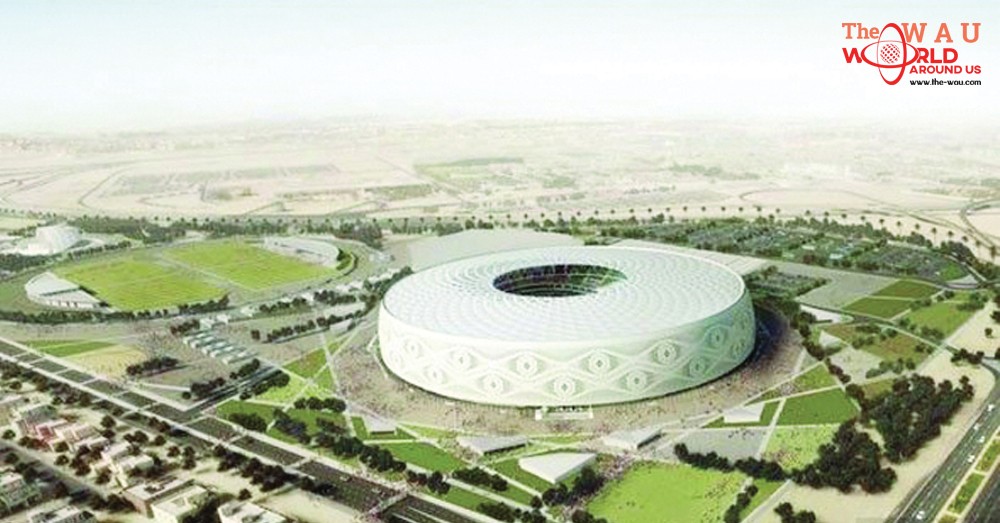The hosting countries of the World Cup are planning to make the most of the economic benefits after the World Cup, just as Russia achieved after 2018 edition profits estimated at $14 billion, but Qatar broke this rule and turned into an exception. Qatar began years ago to reap the benefits of hosting the 2022 World Cup through its accelerated pace of integrated and sustainable development in all sectors of the state.
Yasir al Jamal, Vice Chairman of the Technical Operational Office at the Supreme Committee for Delivery & Legacy (SC), said that the 2022 Qatar World Cup has played an important role in accelerating the pace of development and the completion of many projects planned in advance within the Qatar National Vision 2030.
He said that the World Cup and development are two sides of a single message that Qatar is prepared to organize the most important event in the Arab region and the Middle East and provide the best version in the history of the World Cup.
Speaking to Qatar News Agency (QNA), Jamal said that Qatar’s recent development projects have been planned for a long time within the Qatar National Vision, but hosting a huge historical event as massive as the World Cup was the main vehicle that drove these projects quickly, according to the planned form and schedule set in the plan of the comprehensive committee to organize the World Cup.
He added the SC’s projects for the hosting of the World Cup began at the right time after the completion of the period of planning and design, where the start of the construction phase and all projects are now in full swing, all of which will be ready by the end of 2020 and the beginning of 2021.
The Qatar World Cup projects have been progressing rapidly in various sectors since 2010, which confirms the ability of Qatar to fulfill its promise to organize the best version in the history of the World Cup, serving all the countries of the region and benefiting the peoples of the region, Jamal said.
He also highlighted the achievements following eight years of hard work within an integrated plan which included stadiums hosting World Cup matches, training grounds and infrastructure facilities. He explained that this is evident in the accelerated pace of development and the completion of many megaprojects, most notably the Doha Metro project, which three lines (red, golden, orange) will be fully completed by the end 2019 and the beginning of 2020, in a major achievement and within a short period.
He further added that the establishment of Hamad International Airport and its opening in 2015, with extensions to be added in the coming period, as well as the road projects that are completed daily by the Public Works Authority “Ashghal” throughout Qatar, noting that all these projects were not to achieve at a fast pace without the World Cup.
The World Cup stadiums, which are the most sophisticated in the world of football both in terms of design and exterior shape and in terms of interior design, were not built solely to host the tournament, but to reflect the Qatari originality and give the fans a unique and unprecedented experience of learning more about the rich Qatari heritage, Jamal said.
According to Jamal, the designs of Qatar’s stadiums are inspired by the heritage and environment of Qatar as well as by the modern architecture, where these elements were merged to produce each stadium with a different story that symbolizes Qatar and an idea attracting the world to learn more about the traditions and customs of Qatar and the countries of the region.
Jamal added that Al Wakrah Stadium, which will be completed in the coming weeks, will be ready for official matches, and it is inspired by traditional boats, especially that the city of Wakrah is coastal and located in the southern regions, as well as Al Rayyan Stadium inspired by sand dunes in its outer shape with Qatari inscriptions that decorate old houses, and Lusail Stadium, which was inaugurated last December, is inspired by the shape of the bowl used in the past. The design of Abu Aboud stadium is unique, as it is the first stadium in the world to consist of huge containers installed in the stadium.
The SC is responsible for the implementation of the infrastructure projects to host the FIFA 2022 World Cup Qatar. The heritage and sustainability are the cornerstones of Qatar’s organization of the World Cup. Al Jamal stressed that the cooling technology is one of the characteristics of Qatar’s stadiums, and there are no stadiums in the world using this technology, and the cooling technology in Qatar stadiums has undergone various stages of development since it was first applied in Al Sadd Stadium, then Khalifa International Stadium, and now at Al Wakrah Stadium, which will be opened next May, which in itself is a great advantage for the World Cup stadiums.
Jamal added that the committee promised to donate 170 thousand chairs through coordination with the FIFA and distribute them to countries that need to develop sports infrastructure.
Concerning the crisis of the unjust blockade imposed on Qatar and its impact on the World Cup projects, Jamal stressed that the blockade has become a success story for Qatar, adding that since the first hours of the blockade, the SC has begun to communicate with the main contractors in order to activate the emergency plans in the work program of the World Cup project, which was designed with great flexibility and immediate readiness to meet any emergency conditions, in order to re-evaluate the status of suppliers and supply systems.
Jamal added that the blockade benefited contractors in a large way and opened new doors for them in terms of quality of materials and competitive prices, which are better than the previous, by opening up to markets in Turkey, Oman, Vietnam, South Korea and other countries where these areas were not known to local contractors in Qatar, and it was an opportunity for them to communicate with these companies and to get products with high quality and at a better price.
He also asserted that there is no problem with the operation of the World Cup stadiums which are scheduled to be completed in the beginning of 2021 until the official launch of the championship at the end of 2022, as this will be under the responsibility of the main contractor for each stadium, and this according to the contracts signed by the SC with the main contractors in all stadiums.
Responding to rumblings about Qatar’s readiness to absorb the expected audience to watch the World Cup, Jamal said the “SC has developed integrated and alternative plans for everything related to hosting the World Cup.” He explained that SC did a comprehensive survey of the hotel rooms expected to be available during the World Cup, when it found that it would not be enough, it developed alternative plans such as building cruise ships and special fans villages that will also help to introduce visitors to Qatari heritage in the important tourist areas, in addition to renting private housing units, and all these plans are being studied accurately in order to reach the appropriate number that will cover the needs of all visitors to the World Cup.
Regarding the number of World Cup teams, Al Jamal stresses that all Qatar’s plans and arrangements are based on the hosting of 32 teams, but SC is open to the FIFA and the sports community opinions on this matter, especially that SC’s position from the beginning is that the World Cup is the championship of all peoples of the region and will benefit all of them.
He added that the final decision will be made clear in June during FIFA meeting, but Qatar puts in plans for the best of its people, adding that the final word in this matter is for Qatar, which will take into account the interest of the state and its people and will implement the best option.
Share This Post















